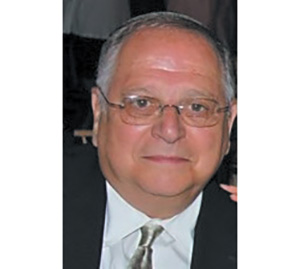
It can be said that all of Jewish education is in essence sacred training inasmuch as we are preparing our children for a life of Jewish practice imbued with Jewish values. Many occupations require specialized training, and today it is not as hard as it once was to find a job that will accommodate Shabbat and Yom Tov days off. The specialized training required for most professions,however, do not involve life-and-death issues, or trauma, nor do they require split-second decision-making that can affect one’s religious observance and entire weltanschauung. Medical training, however, poses special and unique challenges for medical students, interns and residents.
Observant young men and women entering the field of medicine, as a rule, do not have access to or knowledge of the vast halachic literature dealing with a wide range of medical issues and topics germane to their training. What one may or may not do on Shabbat in a hospital setting is only one area in which even not many congregational rabbis may be competent to rule. In truth, these issues will follow a physician throughout his/her career.
The observant medical community owes a great debt of gratitude to Drs. Jerry Karp and Matthew Schaikewitz for producing a volume that addresses these issues as never before, “Sacred Training” (Amud Press, NY) 2018, 426 pp. There have been books on Jewish medicine and Jewish medical ethics, and many articles on a variety of specific issues as they pertain to Jewish law. None are as comprehensive and practical as this volume. In his introduction, Rabbi Edward Reichman, MD, a well-known author of works on medicine and Halacha, surveys the prior literature on this topic. This book was written by observant and very knowledgeable young doctors for medical students, interns and residents based on their own experiences. It is practical halacha. Halacha meets real life—not in the beit midrash, but in the emergency room, surgical suite, examination room and during rounds.
Complete with footnotes and sources, and based in good measure on questions asked of poskim by this group of male and female physicians mostly associated with the Albert Einstein School of Medicine Synagogue and bearing the approbations of leading rabbis, “Sacred Training” is an invaluable addition to any observant doctor’s reading list.
Questions about anatomy training, tzniut, patient dignity, care for the deceased, the entire range of medical care on Shabbat, and practicing on dead patients are discussed along with issues concerning writing on Shabbat, elevators on Shabbat, taking blood on Shabbat, driving to the hospital on Shabbat, and even how to make Kiddush when you are on call. Matters of personal observance such as how early one can daven after a night shift, reciting brachot, how one observes a whole range of mitzvot while on duty in a hospital and even how to schedule a mikvah visit prior to being on call are discussed with great clarity and scholarship.
For many years and in many countries, Jews were denied entry to medical schools. When Dr. Belkin, z”l, opened the Albert Einstein School of Medicine as part of Yeshiva University, he remarked that now we are hosts, not just guests. There are now a number of shomer Shabbat residency programs. He would have kvelled to see this work put out by yeshiva-trained physicians.
This volume of 28 essays should be given to every pre-med student at YU and Stern and be part of the required reading for every Jewishly observant physician.
By Rabbi Dr. Wallace Greene
Rabbi Dr. Wallace Greene remembers Dr. Karp as a precocious young man who grew up in the Torah environment of Cong. Shomrei Torah’s beit midrash minyan where his father, also a physician, is the gabbai.










